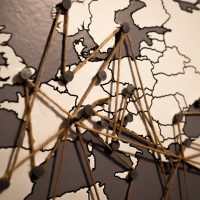Sanctions as a Tool for Asset Recovery: Global Perspective
This report builds on national studies assessing the impact sanctions. Read the studies here: Kenya, Mexico, Moldova, Mozambique.
One of the tools increasingly being used to fight against stolen public funds are sanctions that impose asset freezes. However, despite an increase in the usage of such sanctions to fight corruption, only some sanctions regimes have been designed specifically to aid also in the recovery of misappropriated funds to countries of origin and, as such, provide a direct link to the seizure, forfeiture and recovery processes.

This report explores the growing use of anti-corruption sanctions and their impact on asset recovery. It looks at the Swiss sanctions regime, which is embedded in a wider asset recovery framework, as well as the EU misappropriation and US Global Magnitsky regimes, both of which apply asset freezing measures on individuals but rely on separate legislation to repatriate the funds.
The report also considers the experiences of a diverse group of countries with anti-corruption sanctions where large-scale cross-border corruption cases have been ongoing – Egypt, Kenya, Mexico, Moldova, Mozambique, Tunisia and Ukraine – and identifies some common challenges and opportunities stemming from their attempts to recover stolen assets.
The report concludes that, while sanctions are context-specific, they can be an effective tool to advance asset recovery proceedings in many cases. However, sanctions cannot be seen as the ultimate end; they need to be linked to proactive obligations on law enforcement in countries of destination to work towards asset recovery. More transparency around the process is essential in order to enable greater public understanding, as well as the effective engagement and support from civil society.
Recommendations
As more countries choose Magnitsky-style sanctions legislation that freeze the assets of persons suspected of grand corruption, the report proposes several recommendations for governments to maximise the impact of sanctions on successful asset recovery proceedings:
- Include asset recovery provisions into anti-corruption sanctions regimes,
- Develop transparent designation criteria and apply sanctions consistently,
- Use sanctions as part of broader anti-corruption and asset recovery strategies,
- Work with civil society throughout
Read the report
Full report (EN)
Summary (EN)
Resumen (ES)
Resumo (PT)
Rezumatul (RO)
Any further enquiries into the report or request for comment or quote can be directed to Lucia Cizmaziova, lcizmaziova@cifar.eu.
